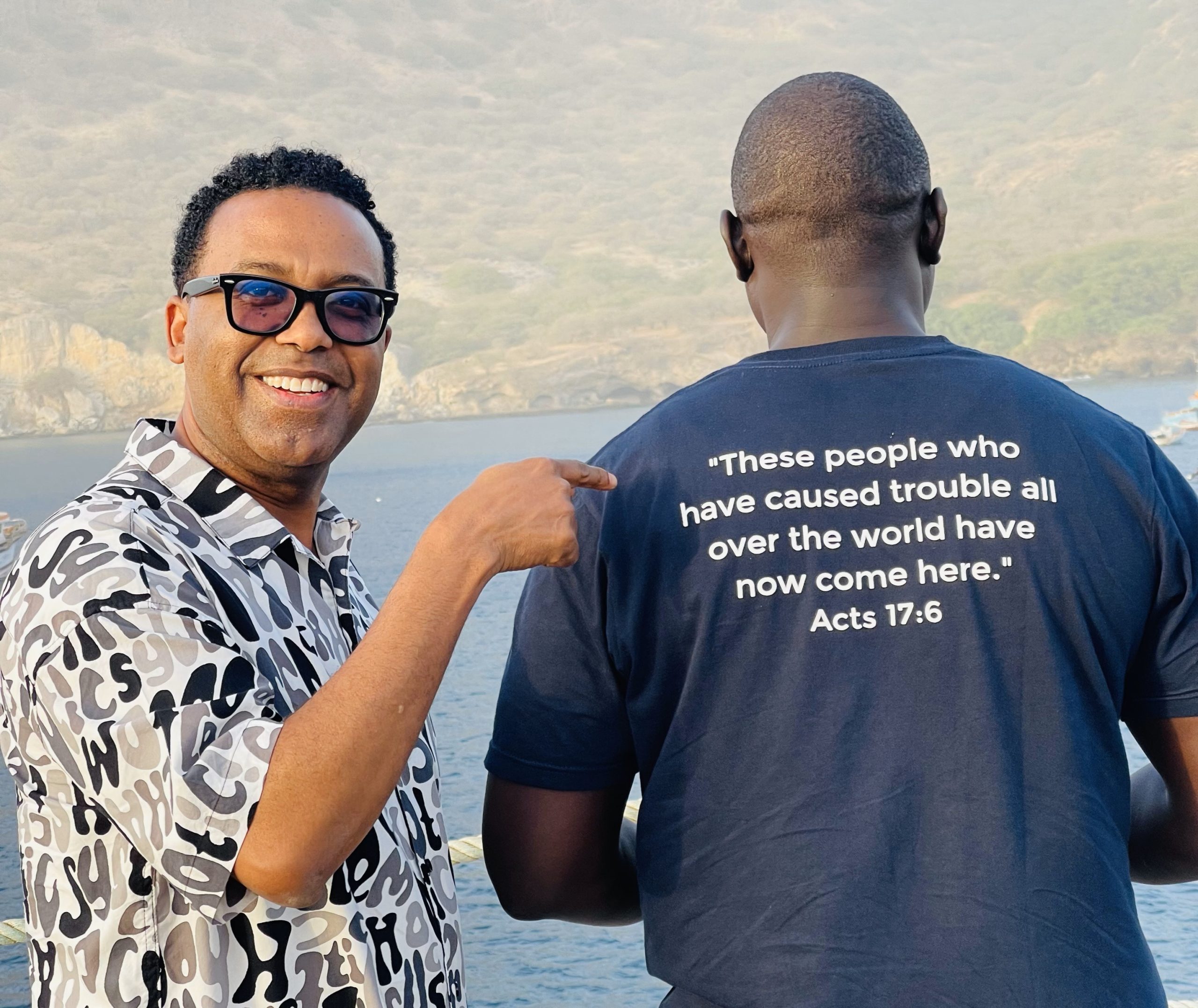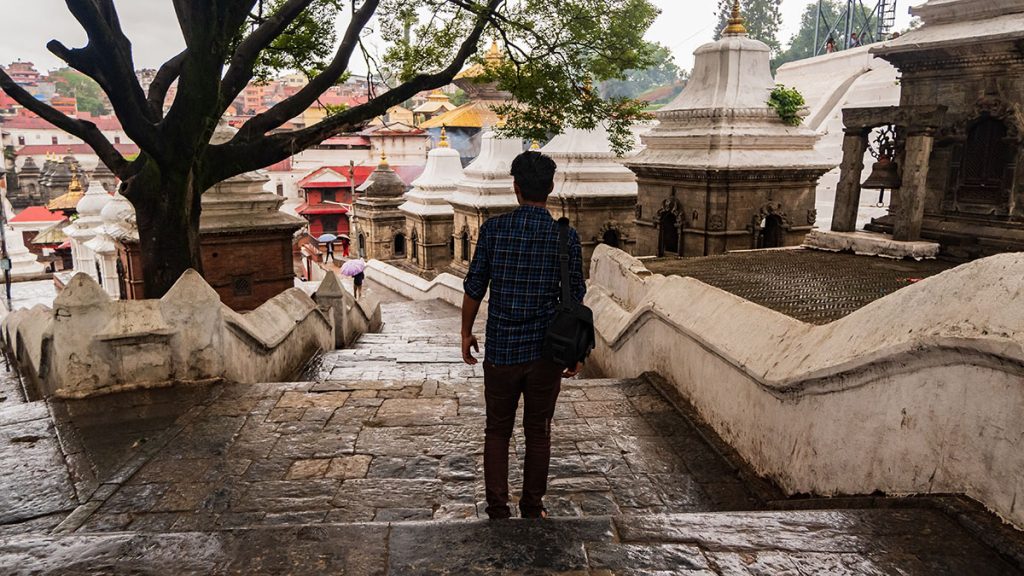
Mission not yet Accomplished
Breaking New Ground around the World
Do you ever wonder about some of the less prominent apostles?
We know about Peter, James, and John from the Gospels. The book of Acts describes Philip’s roadside evangelism and Paul’s missionary adventures. But what about the others? (And can you even name them all?) They spent three years of intense discipleship training with Jesus. They witnessed him die and rise to life. So, what happened to them?
Various legends and traditions exist. Andrew is known as the apostle to the Greeks – although it’s also said that he took the gospel around the Black Sea and into Ukraine. Thomas is said to have planted churches in India, while Bartholomew (aka Nathaniel) and Thaddeus (did you remember him?) preached in Armenia. Whether famous or forgotten, the first apostles were faithful witnesses “in Jerusalem, and in all Judea and Samaria, and to the ends of the earth” (Acts 1:8).
We may not be sure of all the apostles’ trajectories, but one thing is certain: “world mission” was not an invention of Europeans in the colonial era. That’s important because the idea of global evangelism is contentious today. Sadly, words like “mission” and “pioneering” have been tainted by those who sought political and material gain, establishing human empires in the name of Jesus. Godly reflection on such sins should caution us in our own motivations and lead us into repentance and humility. But Jesus’ mandate to take the gospel to new places hasn’t changed: he commanded his followers to preach the gospel to all nations, until the end of the age (Matthew 28), to the ends of the earth, until he returns (Acts 1).
Thankfully, the good news of Jesus is still being taken to new places and peoples – and new campuses and students. In this Conexión blog, we share news of how that’s happening with the help of the Breaking New Ground (BNG) program – one of our Global Resource Ministries that’s inspiring and resourcing students to launch new groups.
DREAMS COME TRUE: EQUATORIAL GUINEA
In 2019, we told you Aida’s story. Having spent some of her childhood in Equatorial Guinea, she had a deep connection with the country. And, after a two-month teaching internship there, during her studies at university in Spain, she felt a calling to return. With support from GBU Spain, the IFES EPSA team, and BNG, she set off to realise her dream: an IFES group in the island capital, Malabo.
She had a positive start. She met students, saw how the churches worked, and enjoyed building a team. As part of the BNG network, she was greatly encouraged by connecting with pioneers in Malaysia and Canada, and by the training and support she received.
Then the pandemic struck. With a heavy heart, Aida had to return to Spain. She tried hard to continue her meetings remotely with the newly formed group, but the internet connection was often problematic. But when she was able to return, she could see how God had been at work:

“Last October we celebrated four years since we met for the first time in Malabo. I remember that first meeting – we were all new, taking tentative steps, yet God was guiding every detail and brought people who have been with us until today. How hard it was to return prematurely to Spain, working online and not knowing how everything would continue. But God went ahead and continued his work. How special it was to return to Malabo almost two years ago and see that, against all human odds, the group had grown.”
And there’s more: God not only cared for each student during that time but also raised up leaders from among them. With the group in Malabo relatively well established, Aida’s thoughts and prayers turned to the mainland – to the National University in Bata and the newly built Afro-American University campus in Djibloho.
During a visit to Djibloho in June, she drove around the campus, praying for opportunities to find Christian students who could start a group. A few weeks later, she heard that a student from the group in Malabo had now moved to Djibloho and was meeting with other Christian students to read the Bible. Alongside this, connections have developed with church pastors in Bata and Djibloho; Aida and EPSA staff have been able to visit and share about the work.
“It’s such a blessing that the student work has expanded to two new university cities – even if that means the need for leadership and team building has tripled! And it can also be a challenge to visit these mainland cities from the island of Malabo. But we’re just so thankful that the Lord is at work.”
“Pioneering work is precious and challenging in equal parts, but it is a privilege to see how God prepares the way. It’s something special to be in a place where there is no student work and then start meeting students to whom God had already given a desire for ministry.”
A LITTLE SUPPORT FOR A GRAND VISION: BNG
Aida’s story in Equatorial Guinea is an exciting example of breaking new ground in a country where no IFES movement existed. Similar projects have been funded in Greenland and New Caledonia. But BNG is not just about pioneering new movements. Many countries with long-established national movements have new ground that needs to be broken.
During his tenure as IFES General Secretary, Daniel Bourdanné felt a burden for those unreached places. He was very grateful for a truly international fellowship, with movements in 160 countries. But he pointed out that many cities and campuses lacked a Christian witness: “I believe now is the time for us to push out our boundaries, to step out in faith and prayer to break new ground for the kingdom”.
Thus began the BNG initiative. Launched in 2018, its goal was to support 100 new planting initiatives by 2020 (see a short video here). To date, over 600 new groups have been started across every IFES region. As such, the ongoing initiative is helping IFES implement one of its strategic priorities – “Thriving on New Ground”.
So, how does BNG work?
The program offers grants, training, and resources to movements that have a vision and a plan for pioneering ministry. Nigel Pollock, program director, notes, “pioneering work has always been a part of the DNA of IFES. Through BNG we are prioritizing projects that arise from the grass roots, support student initiative, and start work in a new location. We’re looking for creative, sustainable proposals that will have the capacity to multiply impact moving forward”.
Those who have a plan for breaking new ground can apply for a grant to help cover costs. Applications are considered every six months, with a maximum award of 7,000 USD. “We have discovered that a little ‘seed money’ can make the critical difference in moving vision into practical action,” adds Nigel.
IMMEDIATE IMPACT IN ECUADOR
In Ecuador, the national movement founded in 1991, Comunidad de Estudiantes Cristianos del Ecuador (CECE), has been pioneering work in seven new cities (Manta, Portoviejo, Milagro, Riobamba, Latacunga, Babahoyo, and Ibarra). They’ve also been breaking new ground with an online group through the University of Milagro (you can learn more about this in the run-up to this year’s Global Giving Day).
Miguel Peñafiel, CECE national coordinator for pioneering groups, is grateful for the BNG grant and support: “Not only have we been able to strengthen connections with our country’s pioneering groups, but we’ve also discovered students who wanted to share the gospel in their universities but were unsure how to. Together with CECE, they’ve been encouraged and have begun to invite their peers to share in Bible studies.”
This is exactly what happened with Matthew, a civil engineering student at Universidad Técnica de Manabí (UTM) in Portoviejo. When he heard about starting a CECE group at UTM, he was excited and joined in – with great results:
“I’d already told some of my classmates about God, and they seemed encouraged. I also told them about the CECE group. Then, one day, to my surprise, they came along to a meeting. And right there in the study, in an application question on 1 Corinthians, they received an offer to accept Christ. And they accepted! Then I invited them over for ice cream to celebrate. After months of trying to get them to come to Christ, that was the day”.

Matthew has continued the conversation with his friends by exploring Luke’s Gospel. Recently, he participated in the CECE Student Leaders’ Training (EFE), and can’t wait to start the new semester. The ground in Portoviejo has been broken and seeded – and it is already bearing fruit.
STEPS FORWARD IN PAKISTAN
Another well-established movement with a vision and plan for breaking new ground is the Pakistan Fellowship of Evangelical Students (PFES). They are seeking to plant new groups in Quetta, Kasure, Sukkur, and Abbottabad.
Philip Chandi, PFES General Secretary, elaborates on the challenge and opportunity in Quetta: “It’s an unpredictable city – it’s close to the border with Afghanistan, and the political situation in Baluchistan is complex. We must always observe the situation in the city before planning a visit. But the churches there are strong, and we have good relationships with them.”
The pioneering project builds on those links. A BNG grant covers the costs for PFES staff from Karachi to travel to Quetta once every three months so they can deepen ties with church leaders and meet students. In some churches, they’ve been able to arrange student gatherings that offer training on discipleship and inductive Bible studies. The plan is that after a year of laying this groundwork, volunteer staff may be appointed to consolidate the ministry.
This approach has worked well in Sukkur. Last year, a volunteer staff worker stepped forward. She is now leading three Bible study groups each week, supported by occasional visits of senior staff from Karachi. “We have encouraging student growth in that city,” says Philip.
NEW GROUND ALL AROUND
Whether in a new country or sub-region, in a new city or on a new campus, new ground is all around. But to break it, we need a tool – and someone to use it. The BNG program helps to provide the spade, but to break new ground, we need more “apostles”.
The root meaning of the word apostle means “one-who-is-sent”. The world, with its thousands of unreached universities and colleges, still needs modern-day apostles – whether larger-than-life Peters (and Petras) or little-known Bartholomews (and Bartholomeas).
Might God be calling you to be sent – to break new ground? Is there a BNG project that you could start? Pray about it. Talk with others in your national movement. If you have a vision and a plan, the BNG initiative might be able to support you.
Or, as you’ve read about pioneer staff Aida in Africa, student Matthew in Latin America, and the volunteer in South Asia, perhaps God is leading you to support those who are sent? With your prayers, encouragement, or donations, you can be a co-worker, helping to break new ground.
Each of us must find our place in the ground-breaking legacy of the apostles – the ones you remember, and the ones you don’t. For Jesus is with us all, till the end of the age, to the ends of the earth.
DO YOU WANT TO BREAK NEW GROUND?
Do you have a heart for starting a group on a campus or in a city with no student witness? Do you have an idea about how to do it? Then explore it with the leadership in your national movement and/or regional IFES staff. They can offer initial guidance and give you details of how to apply for a BNG grant, which are considered each year in April and November. If you have an inquiry about the application process, you can email: bng@ifesworld.org

GLOBAL GIVING DAY – INTO ALL THE WORLD
Passionate about every student having the opportunity to hear the gospel? This year’s Global Giving Day on 17 April is raising funds to make that happen. Visit our webpage for more details. And watch out for further updates in March.
Related Posts

Aida’s dream for Equatorial Guinea
GBU Spain graduate moves to pioneer a new student movement
He’d never seen a Christian before
How Sonam is pioneering a movement in South Asia
From Angola to China
Visiting international students on the other side of the world
When the world stopped
The world stopped. Students didn’t.





